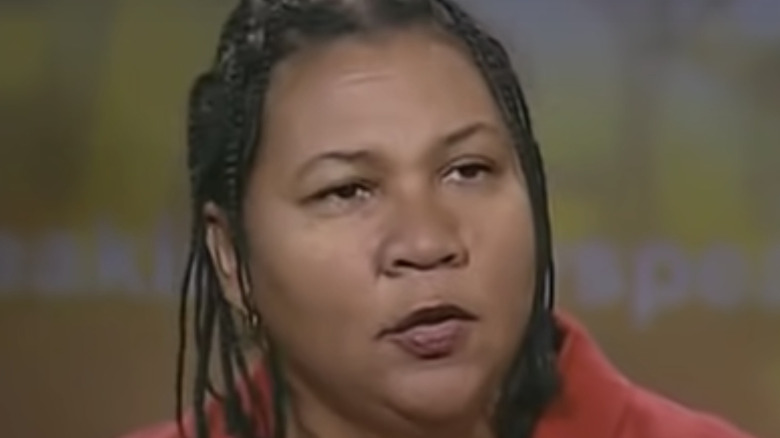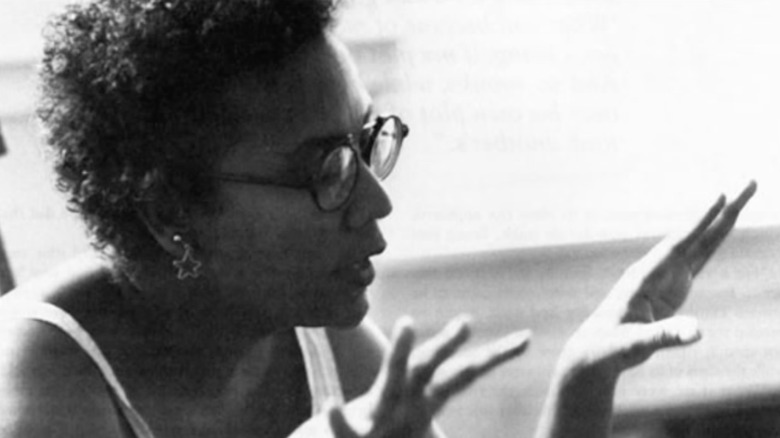The Story Behind Bell Hooks' Name Explained
Precious few academics have enjoyed the kind of crossover success that bell hooks had. The author of some 40 books, most of which center on race and gender, the common thread through all of her work was to be accessible to all readers of all backgrounds and ages. "I want my work to be about healing," she said in 2018, according to the Lexington Herald-Leader. "I am a fortunate writer because every day of my life practically I get a letter, a phone call from someone who tells me how my work has transformed their life." Some of that transformation came in the prison system, from which many men wrote to express their gratitude. The author and public intellectual died on December 15, 2021, at the age of 69, following an undisclosed illness. Before her death, she taught and led the bell hooks Institute at Berea College.
If there was one enduring question throughout her life, it was about her name, bell hooks, which was not her given name. She was born Gloria Jean Watkins on September 25, 1952, in Hopkinsville, Kentucky — a small, segregated town in the western part of the state. She was one of seven children in a working-class African-American family, and it wasn't until Watkins was an adult that she chose bell hooks as a pen name.
bell hooks was inspired by her great-grandmother
Gloria Watkins chose her great-grandmother's name, Bell Blair Hooks (with capitalization), as a pen name because the elder "was known for her snappy and bold tongue," which was something Watkins "greatly admired," per The Sandspur. Watkins has said she put bell hooks in lowercase to signify that what is most important is her ideas, not her identity, saying it's about the "substance of books, not who I am." In the classroom, she was to be called Gloria in the classroom, one of her former students wrote in The New York Times.
But Watkins' use of a pen name goes all the way back to her time as a graduate student when she published a chapbook of poems in 1978 called "And There We Wept." She later wrote about the decision to take her great-grandmother's name in her 1999 book, "Remembered Rapture: The Writer at Work," noting that it was just as much a decision based on the Buddhist influences in her life as it was a professional one. "Using another name was for me a spiritual exercise. It meant that I had to give up a particular kind of recognition that comes when our person is more directly identified with the work we do," she wrote. "Another aspect of this exercise was that the pen name was to serve as a constant reminder to me that I was not my ideas, that they did not represent the voice of a fixed identity."

